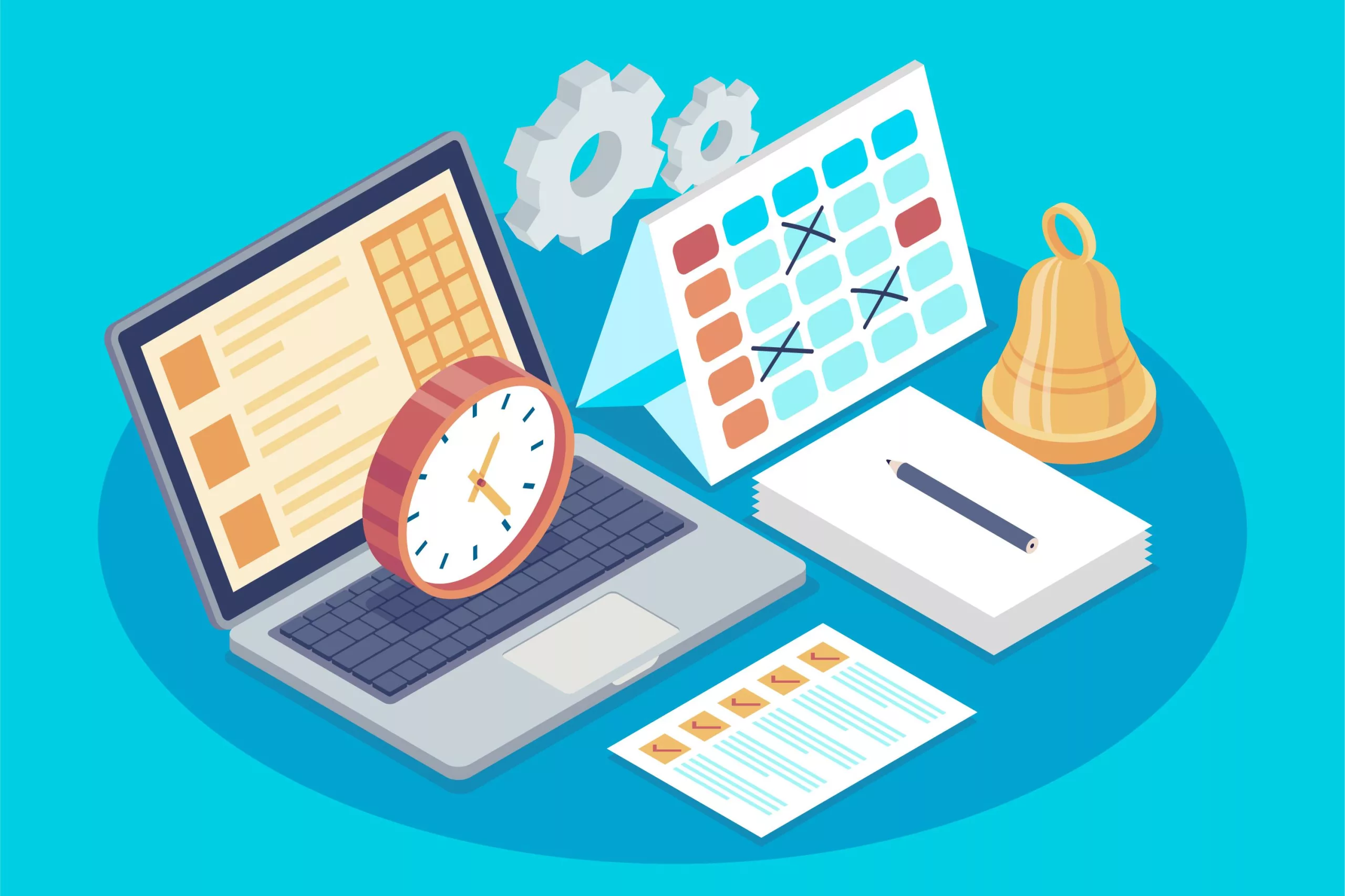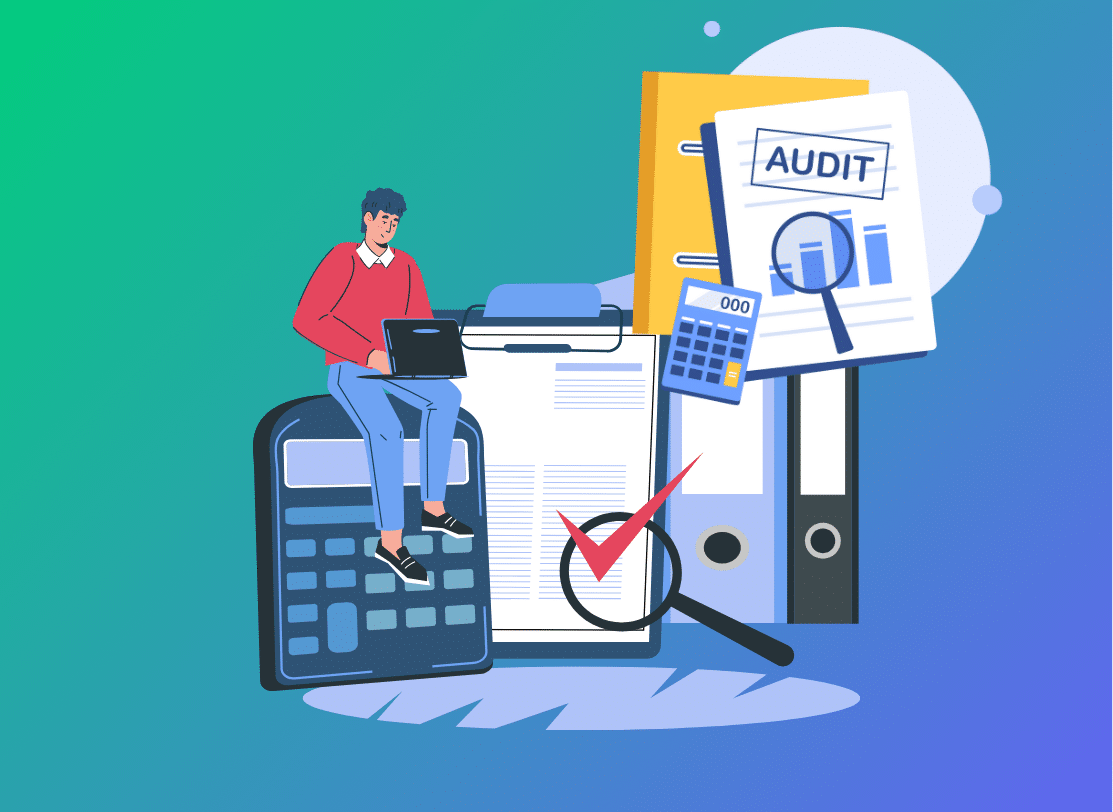Qu’est-ce qu’un logiciel de comptabilité de projet et pourquoi en avez-vous besoin ?

Il existe des centaines de solutions de logiciels de comptabilité disponibles sur le marché, à des prix variés et avec différentes promesses de marque.
Vous vous demandez peut-être lequel est fait pour vous, ou si vous devriez plutôt opter pour un logiciel de comptabilité de projet au lieu d’un logiciel de comptabilité classique.
C’est une question pertinente qui mérite d’être explorée. En termes simples, les logiciels de comptabilité classiques offrent une vue d’ensemble de la santé financière globale d’une entreprise.
Bien qu’ils gèrent des fonctions essentielles telles que les comptes fournisseurs, les créances clients et la paie, ils n’ont pas nécessairement les capacités requises pour gérer les finances d’un projet, comme l’allocation des ressources et le suivi des coûts spécifiques à la gestion de projet.
Les logiciels de comptabilité de projet se spécialisent dans la gestion financière de projets individuels. Ils offrent un niveau de détail granulaire, permettant aux entreprises de suivre les coûts, les revenus et la rentabilité au niveau du projet, de la phase et du client.
Cette approche ciblée permet une budgétisation, une prévision et une mesure de performance plus précises. Voyons cela de plus près !
Qu’est-ce que la comptabilité de projet et quels sont ses avantages ?
La comptabilité de projet est une forme spécialisée de comptabilité qui suit tous les aspects financiers liés à un projet spécifique.
Contrairement à la comptabilité générale, qui traite de la santé financière globale d’une entreprise, la comptabilité de projet se concentre sur le suivi des coûts, de la facturation et des revenus d’un projet.
Elle fournit aux chefs de projet les outils nécessaires pour surveiller les coûts directs, les frais généraux et les revenus afin de s’assurer que le projet ne dépasse pas le budget et que les objectifs financiers sont atteints.
La comptabilité de projet implique la création d’un plan détaillé au début du projet, décrivant tous les coûts anticipés, et la mise en place de méthodes pour suivre et gérer ces coûts tout au long du cycle de vie du projet.
Cela inclut la surveillance des dépenses liées à l’équipe de projet, aux équipements, aux services externes et à d’autres ressources.
Comptabilité de projet vs comptabilité financière
Alors, en quoi ces deux outils diffèrent-ils ?
Une différence clé entre les deux est la période sur laquelle elles se concentrent. La comptabilité de projet s’intéresse à la performance financière d’un projet particulier dans son délai défini, qu’il s’agisse de quelques mois ou de plusieurs années.
En revanche, la comptabilité financière offre un aperçu des finances de l’organisation sur des périodes fixes, comme trimestriellement ou annuellement.
En termes de rapports, la comptabilité financière suit les principes comptables généralement acceptés (GAAP) et est standardisée à travers l’organisation.
La comptabilité de projet, en revanche, est plus flexible et adaptée aux besoins de chaque projet. Cela peut signifier se concentrer sur des coûts spécifiques, tels que les matériaux ou la main-d’œuvre, en fonction des exigences et des objectifs du projet.
Enfin, la comptabilité de projet offre la possibilité de personnaliser les processus pour répondre aux besoins uniques de chaque projet, permettant une plus grande flexibilité et précision.
À l’inverse, la comptabilité financière est régie par le Financial Accounting Standards Board (FASB) et doit respecter des normes réglementaires strictes à travers toute l’organisation.
Comment fonctionne la comptabilité de projet ?
La comptabilité de projet fonctionne en établissant un budget au début du projet et en suivant continuellement les coûts et les revenus tout au long de son exécution. Les principaux composants de la comptabilité de projet incluent :
- création de budget : définir tous les coûts associés au projet, y compris la main-d’œuvre, les matériaux et les services externes ;
- suivi des coûts : surveiller les coûts réels par rapport au budget prévu et ajuster au besoin pour rester sur la bonne voie ;
- reconnaissance des revenus : déterminer quand reconnaître les revenus en fonction de l’avancement ou de l’achèvement du projet.
Les chefs de projet et les comptables utilisent ce suivi financier détaillé pour garantir que le projet reste financièrement viable, en apportant les ajustements nécessaires pour éviter les dépassements de budget et respecter les limites financières.
Quels sont les avantages de la comptabilité de projet ?
La comptabilité de projet peut orienter l’ensemble de votre projet vers le succès en fournissant des informations en temps réel sur sa santé financière grâce à des indicateurs financiers fiables.
En suivant minutieusement les coûts, les revenus et l’avancement du projet, la comptabilité de projet vous aide à maintenir le contrôle de votre budget et garantit que votre projet reste rentable.
Elle permet aux chefs de projet de surveiller des indicateurs financiers clés, tels que les taux d’achèvement, les marges et la production non facturée, qui sont essentiels pour prendre des décisions éclairées.
Avec une comptabilité de projet précise, vous pouvez rapidement identifier toute déviation par rapport au budget et prendre des mesures correctives pour atténuer les risques
Ce niveau de surveillance financière aide à prévoir les coûts et revenus futurs, permettant ainsi une meilleure planification et allocation des ressources.
En fin de compte, la comptabilité de projet garantit que votre projet est achevé dans les paramètres financiers fixés, contribuant à son succès global et à sa rentabilité.
Ces avantages se ressentent alors de différentes manières.
- Des données financières plus précises: La comptabilité de projet fournit des informations détaillées sur la performance financière de projets individuels. Cela permet aux chefs de projet de prendre des décisions éclairées, garantissant que le projet reste rentable et respecte le budget.
- Une meilleure gestion des ressources: En suivant les coûts liés à la main-d’œuvre et aux matériaux, la comptabilité de projet aide à optimiser l’allocation des ressources. Cela garantit que les ressources sont utilisées efficacement, réduisant le gaspillage et maximisant la productivité.
- Un meilleur contrôle du budget: Avec le suivi en temps réel des dépenses et des revenus, la comptabilité de projet permet un meilleur contrôle du budget du projet. Cela aide à identifier les problèmes financiers tôt, permettant des actions correctives rapides pour éviter les dépassements de budget.
- Une meilleure planification et prévision des projets: Les données historiques des projets précédents peuvent être utilisées pour améliorer la planification et les prévisions des futurs projets. La comptabilité de projet fournit une image claire des coûts et des revenus, aidant à créer des budgets et des calendriers plus précis pour les nouveaux projets.
- Identification et atténuation des risques: La comptabilité de projet aide à identifier les risques financiers potentiels dès le début du projet. En surveillant de près les coûts et les revenus, les chefs de projet peuvent anticiper les problèmes qui pourraient affecter la santé financière du projet et prendre des mesures pour les atténuer.
- Une prise de décision améliorée: Avec un accès à des données financières détaillées, les chefs de projet peuvent prendre des décisions plus éclairées sur l’allocation des ressources, les délais du projet et d’autres aspects critiques de la gestion de projet.
- Transparence et responsabilité: La comptabilité de projet garantit que toutes les transactions financières liées au projet sont documentées et transparentes. Cela augmente la responsabilité des membres de l’équipe et offre aux parties prenantes une visibilité claire sur la santé financière du projet.
- Une rentabilité accrue: En surveillant et en gérant de près les coûts, la comptabilité de projet aide à améliorer la rentabilité globale du projet. Elle garantit que tous les aspects financiers sont alignés sur les objectifs du projet, conduisant à de meilleurs résultats financiers.
Quels critères prendre en compte pour choisir un logiciel de comptabilité de projet ?
Il n’existe pas de solution unique en matière de logiciel de comptabilité de projet. Assurez-vous que vous évaluez la solution potentielle en fonction de vos objectifs commerciaux, de vos besoins logiciels et d’autres critères uniques à votre entreprise.
Il est essentiel de choisir un logiciel de comptabilité de projet qui soutient les objectifs financiers et de gestion de votre entreprise.
Critères liés à l’entreprise
Comprendre les besoins de votre entreprise est primordial. Le logiciel doit s’aligner avec vos exigences en matière de contrôle de gestion, vous aidant à surveiller et contrôler efficacement la performance du projet. (Lisez-en plus à ce sujet dans notre article sur le contrôle de gestion).
Idéalement, votre solution de logiciel de comptabilité de projet devrait :
- soutenir vos objectifs commerciaux globaux : on parle ici d’amélioration de la rentabilité des projets, de l’optimisation de l’utilisation des ressources et de la réalisation des projets dans les délais et dans le budget ;
- répondre aux exigences de votre secteur : par exemple, les industries comme le conseil, l’ingénierie ou la construction pourraient nécessiter des fonctionnalités spécialisées pour le suivi du temps, la gestion des ressources ou la conformité aux réglementations du secteur ;
- correspondre à votre budget : considérez le coût total de possession, y compris les frais de licence, les coûts de mise en œuvre, la formation et la maintenance continue ;
- soutenir la prise de décision grâce à des analyses et des rapports : Cela inclut des informations sur la performance des projets, la santé financière et l’allocation des ressources, permettant à la direction de prendre des décisions éclairées.
Ne vous concentrez pas seulement sur les fonctionnalités. La solution logicielle doit être bien adaptée à l’entreprise dans son ensemble.
Critères liés au logiciel
Ensuite, tenez compte des exigences d’intégration du logiciel de comptabilité de projet.
Personnalisation et scalabilité
Assurez-vous que le logiciel peut être personnalisé pour répondre aux besoins spécifiques de vos projets et de votre organisation. La capacité à adapter le logiciel à vos flux de travail uniques et à vos exigences de rapport est cruciale.
Choisissez un logiciel qui peut évoluer avec votre entreprise. À mesure que le nombre de projets augmente et que leur complexité évolue, le logiciel doit être capable de s’adapter sans compromettre les performances.
Communication et collaboration
Votre logiciel doit faciliter une communication et une collaboration fluides entre la finance, la gestion de projet et d’autres départements.
Un logiciel de comptabilité de projet facile à utiliser garantit que tout le monde est aligné et travaille vers des objectifs communs. Il doit rendre facile la communication des informations financières du projet à ceux qui en ont besoin, y compris les sponsors du projet et les autres parties prenantes.
Intégration avec d’autres systèmes
Recherchez un logiciel qui s’intègre sans problème avec d’autres systèmes d’entreprise tels que ERP, CRM et les systèmes d’approvisionnement.
Cela empêche la création de silos de données et garantit une vue d’ensemble de vos finances de projet.
Le logiciel doit maintenir des données cohérentes et précises à travers différents systèmes, réduisant le risque d’erreurs et garantissant que toutes les équipes travaillent avec les mêmes informations.
Critères supplémentaires
Enfin, considérez les critères qui rendront votre équipe plus efficace et facilitent l’utilisation du logiciel.
Solution basée sur le cloud
Un logiciel de comptabilité de projet basé sur le cloud permet une collaboration facile, un accès en déplacement et prend en charge les équipes hybrides. Cette flexibilité est de plus en plus importante dans les environnements de travail dynamiques d’aujourd’hui.
Conformité à la sécurité et à la confidentialité des données
Le logiciel doit protéger les données financières sensibles contre les accès non autorisés et les violations. Il doit garantir que les données sont régulièrement sauvegardées et peuvent être rapidement récupérées en cas de défaillance du système.
Adaptation légale pour les audits et la fiscalité
Assurez-vous que le logiciel de comptabilité de projet est conforme aux réglementations financières et aux normes pertinentes (par exemple, GAAP, IFRS).
Cette conformité est cruciale pour les audits et les impôts, réduisant le risque de problèmes juridiques.
Services de l’éditeur du logiciel
Recherchez un fournisseur de logiciels qui offre une formation adéquate aux utilisateurs, garantissant une utilisation efficace du logiciel.
Assurez-vous que l’éditeur propose un support et un service client disponible, en particulier lors de la phase d’implémentation et d’adoption initiale.
Que vous gériez des projets de construction, dirigiez une pratique de santé ou exploitez une petite entreprise, la sélection du bon logiciel de comptabilité de projet est cruciale pour votre succès.
Le logiciel de comptabilité de projet est un logiciel de gestion financière spécialisé qui se concentre sur le suivi des coûts, des revenus et de la rentabilité au niveau du projet, offrant des informations et un contrôle plus détaillés que les logiciels de comptabilité généraux. Il permet une budgétisation, une prévision et une mesure de performance précises, ce qui est crucial pour respecter le budget des projets et assurer leur rentabilité. Le logiciel soutient une meilleure gestion des ressources, l’identification des risques et la prise de décision, tout en garantissant la conformité aux réglementations financières.
Lors du choix d’un logiciel de comptabilité de projet, il est essentiel de prendre en compte à la fois les besoins liés à l’entreprise et les capacités du logiciel, telles que la personnalisation, l’évolutivité, l’intégration et la sécurité des données.


